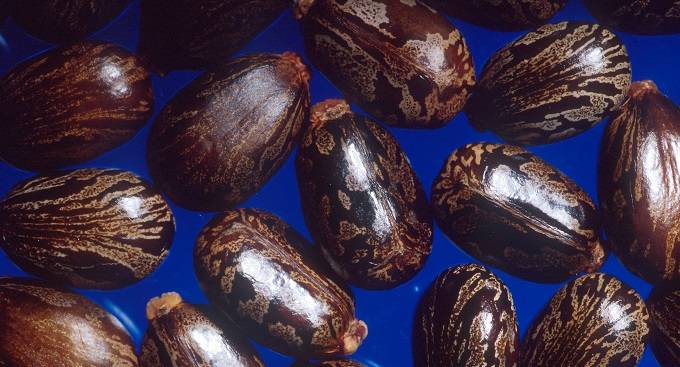Company sets aside US$700k for castor bean

Oliver Kazunga, Senior Business Reporter
A LEADING bio-technology company, Oil Castor, has this year set aside US$700 000 to buy castor bean from rural farmers in four Sadc countries including Zimbabwe.
Under its castor bean farming initiative, Oil Castor avails engineered seed to rural farmers in Zimbabwe, South Africa, Botswana and Mozambique while in turn the firm buys back the harvested crop as its feed stock.
Oil Castor co-founder Mr Alvaro Arellano told Business Chronicle that last year his organisation paid out US$230 000 to rural farmers across the above-mentioned countries.
“Last year, we paid out a total of US$230 000 to farmers across Zimbabwe, South Africa, Mozambique and Botswana. Of that amount US$160 000 was spent on farmers in Zimbabwe.
“This year we are looking at spending between US$300 000 and US$700 000 in total on rural farmers across the four countries,” he said.
In recent years, Oil Castor has supported about 300 farmers in castor bean farming project. Mr Arellano encouraged more rural farmers to embrace castor bean farming as the crop thrives well across Zimbabwe and offers lucrative returns on the market.
“They (rural farmers) buy the engineered seeds, we buy back the crop. Our seeds are engineered so the yields are consistent.
“Our castor plant is crossed with cacti, so we don’t need water, although it does help with tonnage,” he said.
The bio-technology firm uses the castor bean to produce motor oil or hydraulic oil, bio-diesel as well as a wide range of products such as cosmetic oils and soaps, which it exports around the globe.
Of late, castor bean seed has also been touted as a ready jatropha alternative in producing bio-diesel and if more farmers venture into growing the crop, this would be an effective solution to Zimbabwe’s fuel situation.
In this light, the country’s import bill, which at the moment was largely driven by fuel as Zimbabwe spends about US$1 billion annually importing diesel and petrol, could be cut. “We are happy that Zimbabwe engineers helped us develop bio motor oil, which is our best seller.They have also helped us develop over 100 products that we ship around the world,” he said.
In recent years, Oil Castor has supported castor bean farmers with education on good agronomic practices to maintain a good consistent yield.
According to the company’s farmers’ guide, harvesting of the crop is done after every four months over seven years.
The first four months after planting the engineered seed has an average yield of one tonne per hectare, in eight months the yield averages three to four tonnes per ha and at 16 months and beyond output averages between six and eight tonnes per ha.
The farmers’ guide also indicated that castor bean is a perennial crop and can be grown under climatic conditions of between 25 and 35 degrees celcius and the crop favours all types of soils alkaline or acidic soils with pH range of 4,5 and 8,3 as long as the sub-soil is permeable and there is good drainage.
The crop is also resilient to all rainfall patterns.
Meanwhile, research indicates that castor oil bio-diesel has a very low cloud and pour points, which makes it the best alternative in winter conditions. It can be used as an additive for petroleum diesel to improve on endurance.
Furthermore, castor oil bio-diesel reportedly lowers the cloud point value although it may increase the viscosity of bio-diesel blends. The viscosity, though, makes castor oil bio-diesel with its very low cloud and pour points, suitable for use in extreme winter temperatures.
The Government has instituted the National Bio-Fuels Policy to govern the sector in complementing the country’s thrust on renewable energy production. — @okazunga.









Comments